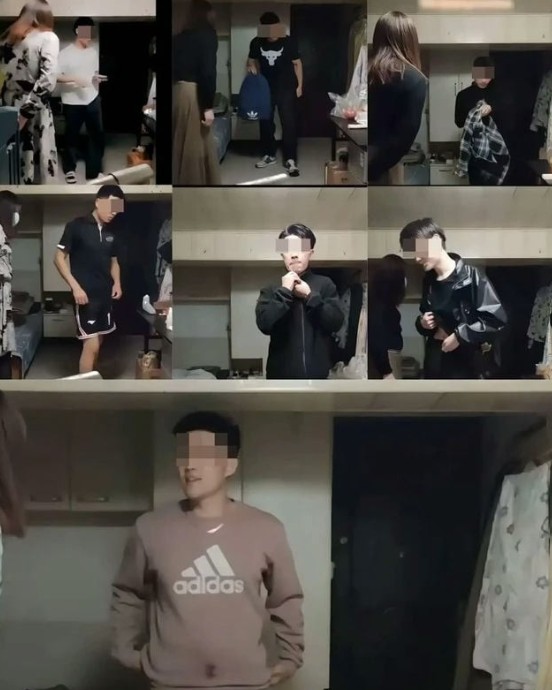Sister Hong Video Scandal and Internet Worldwide
In an era where social media dictates fame, reputation, and downfall within hours, the case of Sister Hong is a prime example of how quickly the internet can turn on a beloved online personality. Known for her charming personality, lifestyle content, and widespread appeal on platforms like TikTok and Facebook, Sister Hong had cultivated a significant fanbase over the years.
However, in mid-2025, that carefully built image was thrown into turmoil after a private and intimate video, allegedly featuring her, was leaked online. As the video spread like wildfire, it stirred massive online controversy, public debate, and legal concerns, raising deep questions about privacy, consent, and the power of viral media.
Content
The Leaked Video
The scandal began when a short, intimate clip began circulating on social media with the label “Sister Hong leaked video.” The footage appeared to show a woman resembling Sister Hong in a private, vulnerable setting. Within hours, screenshots and edited versions of the video flooded platforms such as Telegram, Twitter (now X), Reddit, and various meme forums.
The uncensored leaked video of Sister Hong shocked the world
Although the origin of the leak remains unclear, some sources claimed it was shared from a hacked private account, while others speculated it was distributed intentionally or by someone close to her. What made the situation worse was the fact that multiple versions of the clip began appearing, with many edited to remove blurring or watermarks, intensifying the damage.
Despite debates over the video’s authenticity, the online community largely accepted it as genuine due to the striking resemblance of the woman in the video to Sister Hong.
Public and Media Reactions
As expected, netizens reacted with a combination of shock, ridicule, and curiosity. The hashtag #SisterHongVideo trended across multiple countries. Online communities exploded with theories, debates, and memes. Some users expressed disappointment, while others condemned the breach of privacy.
News blogs and gossip sites were quick to capitalize on the traffic surge, posting sensational headlines and ambiguous articles to generate clicks. Others, more cautious, questioned the ethics of covering such sensitive material and chose to focus on the privacy violations rather than the scandalous content itself.
Fans of Sister Hong took to her defense, calling for empathy and demanding the removal of the video. However, critics and trolls flooded her past posts with inappropriate comments and screenshots.
Sister Hong’s Response
At the height of the viral storm, Sister Hong remained silent for several hours, leading to even more speculation. Later, she posted a short statement on her Instagram story, stating:
“I am deeply hurt. This is a serious violation of my privacy. I will be taking legal action. Please respect me and my family.”
She disabled comments on most of her social media platforms and reportedly deleted some older photos and videos. Her management team followed up with a press release condemning the spread of the video and confirming they had contacted legal representatives to investigate the origin and distribution of the footage.
Her supporters praised her for handling the situation with grace, while skeptics questioned the timing and sincerity of her response.
Privacy, Consent, and Legal Considerations
The Sister Hong incident has reignited important discussions surrounding digital privacy and consent. In many countries, the non-consensual distribution of intimate content, even if real, falls under strict cybercrime laws, commonly referred to as “revenge porn” or digital sexual assault.
Experts emphasized that anyone sharing or reposting the leaked content, knowingly or unknowingly, could be subject to criminal charges, depending on local jurisdiction. Some netizens reported that accounts reposting the video were suspended or taken down, while others remained active despite violating community guidelines.
This case highlights the urgent need for stricter enforcement and education around online content sharing and victim protection.
Public Sympathy vs. Blame Culture
As with many scandals involving women, Sister Hong faced a toxic wave of victim-blaming. While many showed solidarity and compassion, others questioned why such a video existed in the first place or accused her of staging the leak for attention, a narrative all too common in similar cases.
This dynamic revealed deep-rooted misogyny and double standards in how male and female public figures are treated when intimate content is exposed. The blame culture surrounding leaked videos often forces victims into silence, shame, and emotional isolation.
On the other side, activists and women’s rights groups came forward to support Sister Hong, denouncing the spread of the video and urging social media platforms to act faster in removing such content.
Impact on Sister Hong’s Career and Image
While some influencers have managed to turn viral scandals into career boosts, it remains uncertain how this controversy will affect Sister Hong’s long-term career. In the immediate aftermath, she lost several brand sponsorships, and two of her upcoming promotional events were canceled without explanation.
Conversely, her follower count actually increased, as curious users flooded her profiles to learn more about the scandal. This phenomenon, often referred to as “infamy fame,” reflects how public controversies can sometimes paradoxically boost an individual’s online visibility, even if it comes at a devastating personal cost.
Some speculate that Sister Hong may choose to take a break from social media or rebrand herself entirely. Others believe she will bounce back with the help of public sympathy and careful reputation management.
Broader Reflections on Internet Virality
The Sister Hong video is just one of many examples of how the internet can amplify personal trauma into global spectacle. In the attention economy, where content is consumed, shared, and forgotten in hours, real people suffer long-lasting consequences.
As more private moments are stored digitally, on phones, in the cloud, or in chats, the risk of unauthorized exposure continues to grow. The Sister Hong scandal serves as a painful reminder that digital intimacy, though personal and consensual in creation, can be weaponized in an instant.
It also raises ethical questions for audiences: Why do we feel compelled to view or share leaked content? What role do we play in the humiliation of others?
The leaked video involving Sister Hong has left a lasting impact, not only on her personal and professional life, but on broader conversations about privacy, respect, and accountability in the digital world. While the internet continues to debate her innocence, responsibility, or response, one truth stands above all: no one deserves to have their private life violated and paraded for public consumption.
In the end, the way we respond as individuals and communities speaks volumes about our values. The scandal may fade, but the lessons it brings about digital ethics, consent, and compassion are more relevant than ever.
Daily Hot News -Andini Viral Full Video and Privacy Breach
Camilla Araujo Video Sparks Online Frenzy
Breckie Hill Leak Video and the Quest for Privacy
Moon 10 and Leon Bailey Video and Privacy Concerns
Hockey Player Fight on Golf Course Video in Alberta
Jeffrey Epstein Video Reviewed by FBI Confirms No Foul Play
Julia Martinez Quinceanera Video and Birthday Celebration



